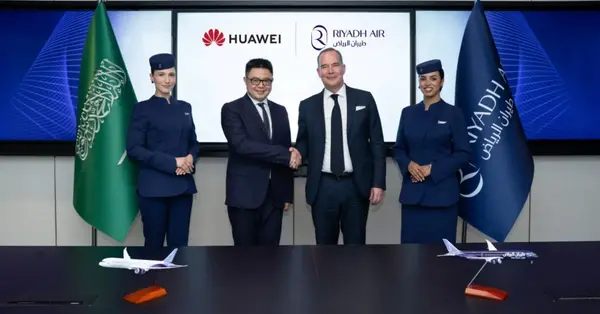You are viewing 1 of your 2 free articles
Is your travel business China-ready?
Connecting Travel spoke with China-based Anson Lau, managing director of Shiji Distribution Solutions, part of Shiji Group – a global hospitality technology company with over 90,000 hotel clients around the world –
about why the time to capture Chinese outbound tourism is now – despite Chinese people still not yet being allowed to travel internationally.
Connecting Travel: What is your best predication as to when outbound travel will be allowed by the Chinese government?
Anson Lau:
The consensus among industry professionals here in China is that international outbound travel restrictions won't begin to relax until after Chinese New Year next year (22 January 2023). Realistically, March or April onwards it should begin to relax. It won't be a sudden opening and complete return to normal all at once – and this date is one that has been delayed several times now already.
CT: By 2023, almost all Chinese citizens will have has three years without outbound travel, so is pent-up demand high?
AL: Oh yes, there's a lot of pent-up demand. In particular the desire is very strong from generations X and Y, which often have young families and are around the peak of their earnings and spending capacity.
CT: Could such pent-up demand result in a massive one-off boom?
AL: Because travel restrictions will be relaxed gradually, we're not expecting a big one-off boom. It's more likely to increase steadily as restrictions ease, perhaps over a year or so. At some point, when people feel that Covid is truly behind us, we may see a bit of a one-off boom followed perhaps by a return back to normal, stable levels of outbound tourism.
RELATED:
Study reveals the online travel agent with the best rates
Travel brands must demonstrate a commitment to diversity and accessibility, says report
UNWTO research points to sustained tourism recovery
CT: Does this mean travel sellers need to be marketing to Chinese tourists right now, even though they can't book yet?
AL: Very much so, yes, the question right now isn't 'when will they be able to travel?' but rather 'when they return, are you positioned to capture them?'. When Europe was at the height of its pandemic lockdown some 18 months ago, some of our wholesale partners in China put European business on hold and focused entirely on Chinese domestic travel, while others continued to sign partnerships for European accommodation and distribution. It wasn't easy. Everyone was in survival mode and businesses needed to generate cashflow quickly. However, when Europe re-opened, those who were prepared then profited nicely, while those who put overseas business on-hold were scrambling to catch up.
If you wait to act until demand has clearly returned, it will be too late
CT: Which destinations do Chinese people want to travel to?
AL: While Chinese people like to travel all around the world and the numbers are impressive. In 2019, a million Chinese travellers visited the UAE.
Understandably, however, the majority of outbound Chinese travel is to destinations in Asia. Therefore, I think the rebound into Japan will be very strong. Japan has always been one of the favourite destinations for Chinese tourists. Compared to some other Asian nations, Japan's cleanliness and availability of high quality medical care is something Chinese travellers now value highly with the pandemic still fresh in their minds. Right now, Japan is even more attractive due to the weakening of the Japanese Yen making it more affordable.
CT: Tell us about the best distribution methods to reach Chinese travellers: should a hotel favour OTAs, retail travel agents, bedbanks, direct to consumer, or some other channel?
AL: There is no one-size-fits-all method. Where are your properties based and what type of properties are they? Are they high-end resorts in exotic destinations or a chain of select service hotels in business cities? And does your brand have properties in China? In general, if your brand is not well known already in China and you do not have sufficient volume to operate a sales and marketing team in the country, then direct to customer is going to be very expensive and ineffective. In this scenario, partnering with wholesalers and OTAs makes good sense. But don't just focus on Chinese OTAs; global OTAs are important as well.
Many Chinese travellers use Booking.com, Expedia and Agoda when they book international hotels
If your business volume from China warrants running a sales and marketing team in China, then you may start looking at brand building and some direct sales via local social media such as WeChat and newer media channels like Tiktok, Little Red Book and other popular apps.
CT: How can IT systems best integrate with those of China-based partners?
AL: Direct connectivity on booking is essential and considered pretty much standard now by all the big travel sellers in China, so without that available you won't get far. Visual content integration with your distribution partner is also highly recommended. Everyone wants to see the room before booking it – so make sure that your photos are up-to-date and appealing. You'll notice a difference in conversation rates when you do. It's also worthwhile to ensure your content is translated and reflected accurately when displayed in China. If things such as any local taxes and fees payable on arrival are not made clear to the consumer when they book, it will adversely impact their experience. Review scores are ultra important and if a few guests leave negative comments on the OTA site or a review site it will really impact your conversion rate.
GET YOUR FREE 48-PAGE GCC TRAVEL & HOSPITALITY REPORT HERE
CT: Should all hotels around the world be targeting Chinese guests?
AL: They certainly should be considering them, given the importance of the market. But after careful analysis many might correctly decide not to prioritise Chinese travellers. Consider how many of the guests you could potentially acquire are Chinese? For example, a business hotel in Finland where less than 1% of guests are Chinese probably shouldn't be focusing on this too much, as those guests can probably find the hotel via Booking.com anyway. But if you are a leisure hotel in Thailand or Japan, then yes you should probably be investing hard in attracting Chinese guests.
CT: What types of properties and room types do Chinese travellers go for?AL: Generally, Chinese travellers prefer properties that seem newer and more modern. It's a common perception that a newer property is cleaner, brighter, better built and safer. As for room types, most Chinese travellers are cost-conscious and just take the standard room type as they would rather spend money at attractions, dining out and – in particular – shopping rather than on the room.
CT: How are the tech preferences of Chinese travellers different from most Western markets?
AL: The most important thing by far is decent and free wifi. If your hotel does not provide it, you will get negative reviews. Mobile payments are next. Alipay and WeChat Pay is the default way people in China pay for virtually everything nowadays. By making sure you can accept such payments – and communicating that prominently in your advertising and various touch-points with potential guests – you will make a lot of Chinese travellers feel at home.
CT: Is a Chinese language website key to attracting Chinese travellers?
AL: Chinese consumers rarely use a hotel's website since Google and many western search engines are not accessible. In fact, it would be difficult for most locals to find an overseas hotel's website (global brands aside) even if they know the name of the hotel. So, a Chinese language website is not a priority really. Instead a brand presence across various OTAs that have a web presence in China, along with good reviews from Chinese guests in the comments, is much more important. As are promotions campaigns with travel agents. If your property is a destination in and of itself, for example, a bespoke resort, a historic building, or a Disney or Universal type theme park resort then high-quality, short videos promoted via various internet and mobile channels could be quite useful.
CT: Should travel sellers target Chinese travellers with social media?
AL: Facebook, Twitter and Instagram are generally not available or used in China. Instead you should probably look at having a presence on WeChat and Tiktok, two of the most popular apps here today. But there is no use having a WeChat and/or Tiktok presence if you do not invest in creating good content and keep it up to date, run some promotions on it, and have someone responding to messages quickly. My general advice is to do it if your portfolio of properties has sufficient business volume from China to support it, and if you it, budget for it properly.
CT: How do the needs of Chinese travellers differ from others?
AL: Chinese speaking staff of course helps and is a big first step to make Chinese guests feel welcome. But there are many other preferences they have that you need to consider. Chinese guests like to have a pair of slippers in their room. Many prefer drinking warm water and want to have a kettle. Have comfort food like fried rice or soup noodles on your room service menu. Because tap water is not drinkable in China, hotels in China always provide guests with unlimited complimentary bottled water. Many Chinese guests expect the same, especially when they stay at a four- or five-star hotels overseas. It doesn't have to be Evian. It can be any high-street brand and in larger 1.5-litre bottles.
For Chinese guests, high-speed wifi connectivity is a must
CT: Finally, what about loyalty schemes – are they popular in China?
AL: If you have a meaningful portfolio of properties and a good loyalty scheme, the Chinese market could really boost your membership quickly. A unique opportunity in the China OTA space is that if the hotel can offer the same benefits and privileges of a direct guest to a booking from an OTA – effectively treating the OTA as its 'quasi direct' channel – then local OTAs are willing to integrate the hotel's membership system into their website, and help the hotel with new member acquisition. The OTA will automatically sign-up the guest to the hotel's loyalty programme (with the guest's consent, of course) when they make a booking. If the guest is already a member, then the booking will also go into the guest's profile as a direct booking. Also enquire about VIP member acquisition via membership level matching. Some OTAs have their own membership levels. A high-spending member of an OTA could immediately become a high-level member of the hotel the first time they book. The guest gains instant VIP status and the hotel gains a high spending member.














